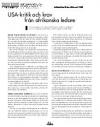Democracy and stability in west Africa:the Ghanaian experience
| Upphovsperson: | Boafo-Arthur, Kwame |
|---|---|
| Utgivare: | Nordiska Afrikainstitutet | Uppsala : Nordiska Afrikainstitutet; Department of Peace and Conflict Research, Uppsala University |
| År: | 2008 |
| Ämnesord: | democracy, Ghana, Political science, Statsvetenskap |
